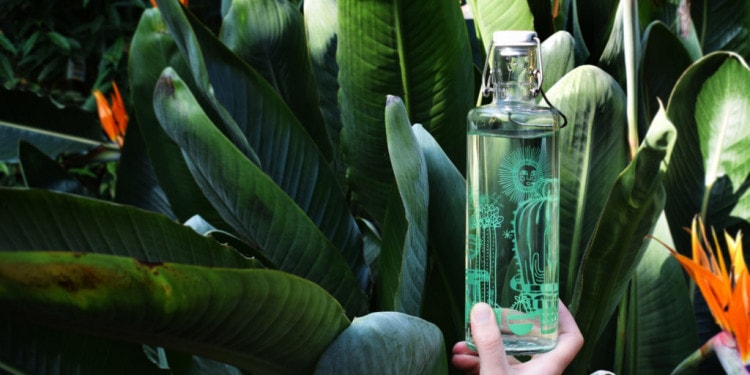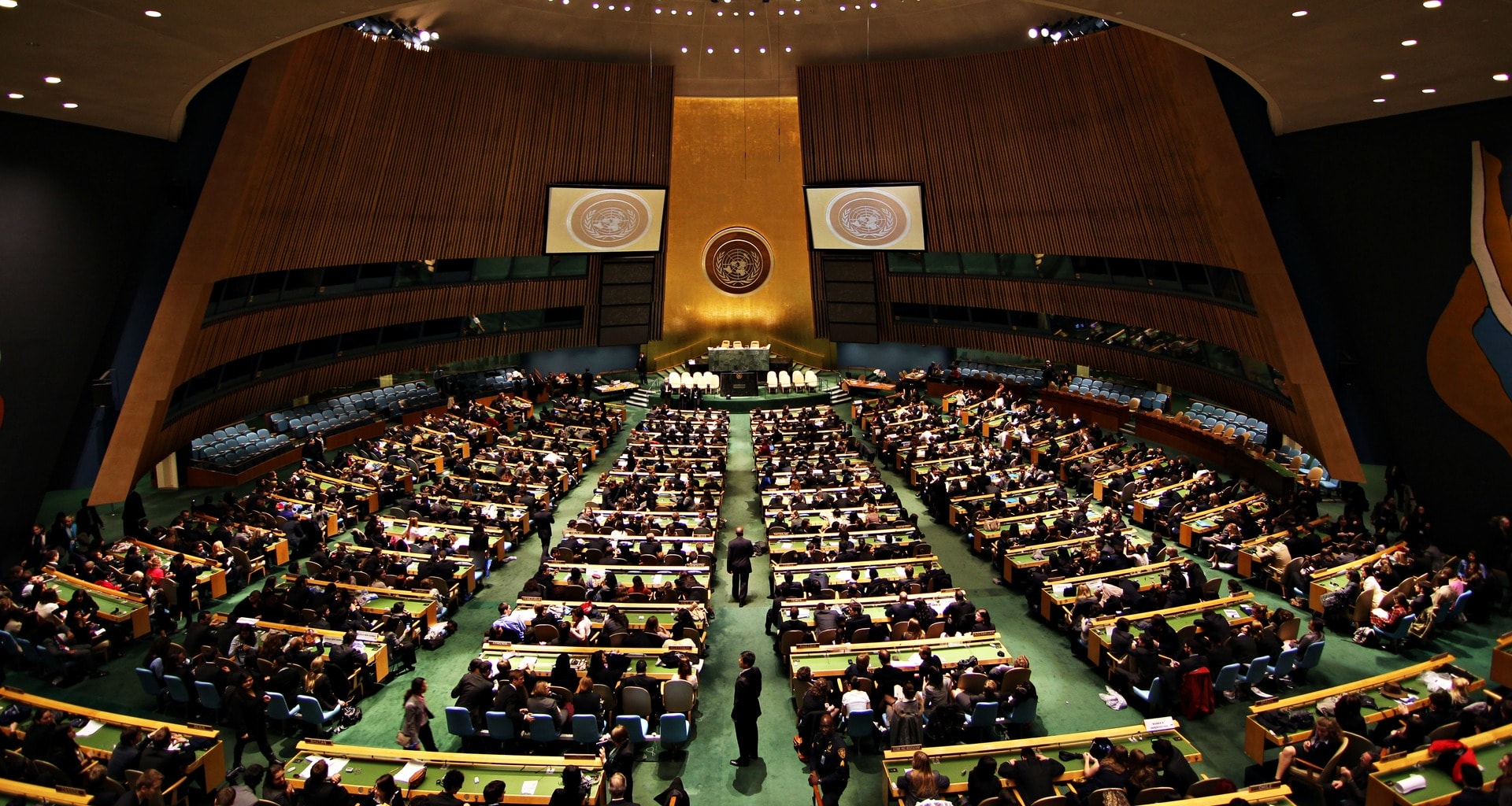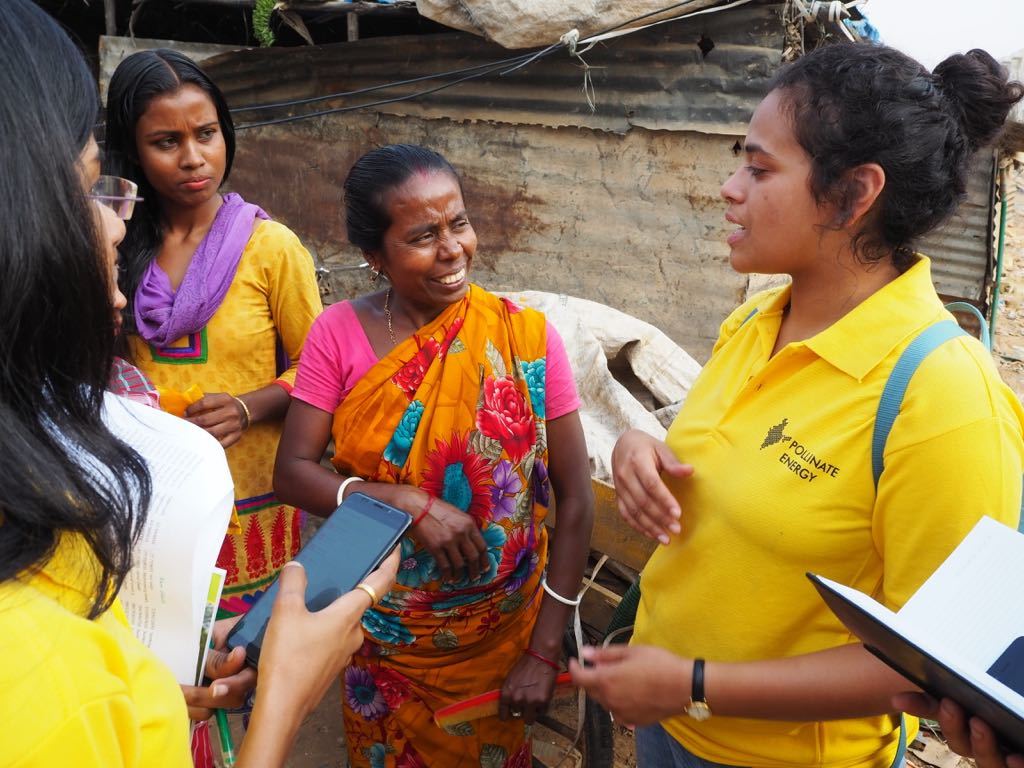Calling the bottled water industry large would be a huge understatement. In just the US alone sales in the industry were around $16 billion in 2017, outpacing all soda sales combined for the first time in history, and the global figure is many times higher at around $147 billion. In today’s day and age, water is more than just life; it’s also big business.
Bottled water certainly does have its benefits, most notably convenience and portability. But its costs shouldn’t be taken lightly either. At this point in time, humanity as a whole buys close to a million plastic bottles a minute (including other non-water drinks), and sadly 91% of those bottles don’t get recycled, ending up in either landfills or oceans to the detriment of the environment. Furthermore, drinking water is ultimately a finite resource, meaning that the quicker it’s bottled and shipped around the world, the higher the risk of shortages and scarcity in the future.
Thankfully, a simple alternative that tackles the issues of both plastic waste and over-extraction exists; reusable bottles. That’s the solution Paul Kupfer, co-founder and CEO of Soulbottles, has been focusing on. Soulbottles produces glass bottles that are both durable and artistic, each with its own unique design and image. In addition, every bottle made is plastic-free, helping to stem the environmental degradation associated with regular bottles. I interviewed Paul to learn more about Soulbottles’ origins, its sourcing standards, and the benefits of reusable glass bottles.
Q. How did Soulbottles originally get started?
PK: Soulbottles got started in Vienna, Austria, where George and I were both studying. We came across a project that was 150 years old, a pipeline for water that was going right from the Alps to the city of Vienna. It was basically still intact and used by the water supply company, so that water that was coming out of the tap in Vienna was basically mountain water quality. It was really good, they didn’t even have to filter or add anything. Yet there was still a huge problem with plastic waste in the city. There were so many plastic bottles because people on the go just bought them. So we thought, “Why don’t people just reuse one bottle more often?” We thought that the key is those bottles don’t look nice. You have to make something look beautiful and aesthetically pleasing and then people will use it.
Our idea was to ask all our friends who were artists and designers, “do you want to make some awesome designs? We’ll put them on glass, and then people will reuse them.” The first ones we manually produced in a local art university. We had around 40 or 50 in the first charge, and then friends started to ask, “I saw you gave someone else a bottle, can I have one too?” The next 50 were gone in three weeks. This was in 2011. From then it just continued. Every month we basically sold out, and about nine months later the first investors came, and we started the company properly.
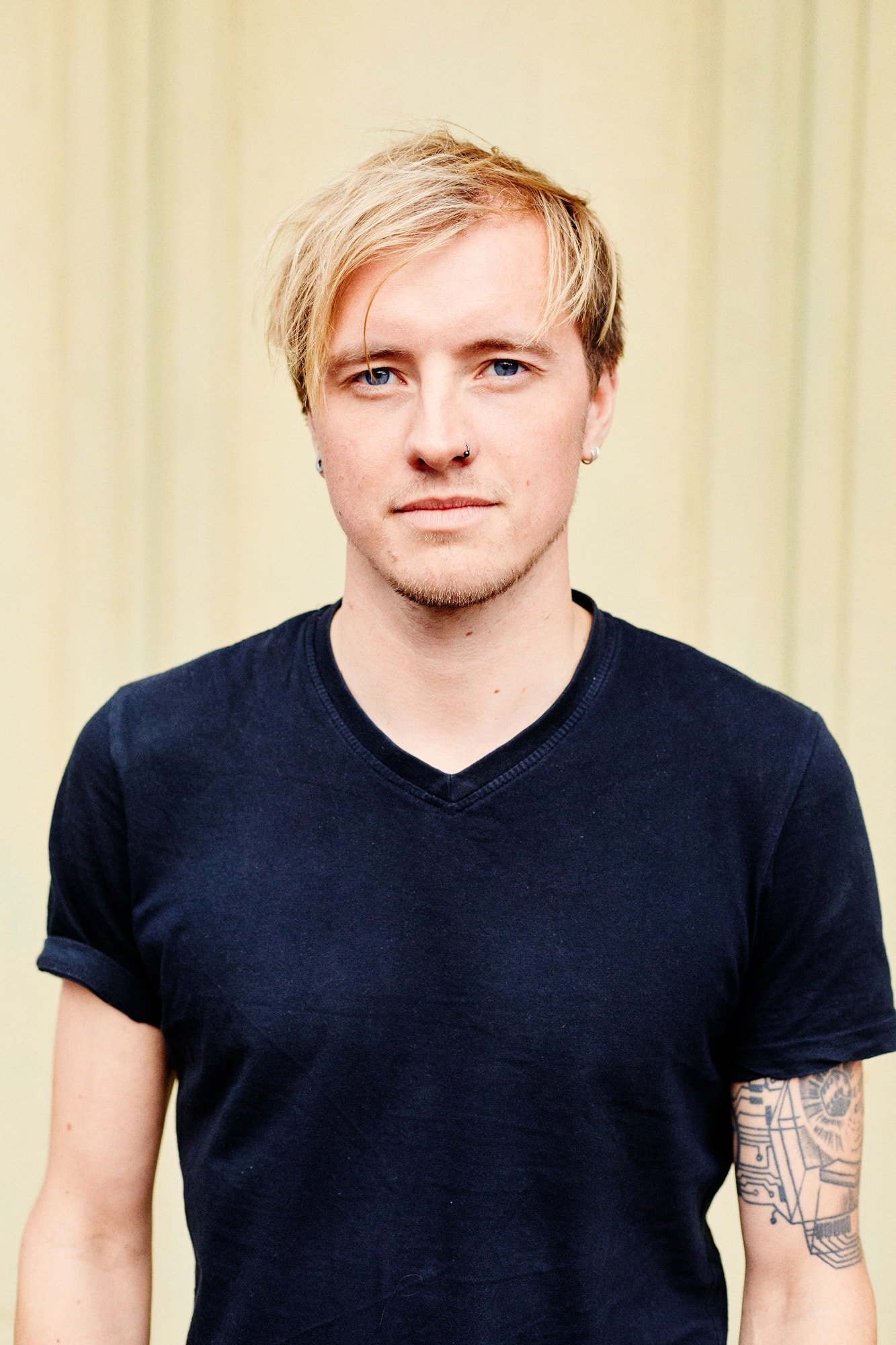
In the Photo: Soulbottles co-founder and CEO Paul Kupfer. Photo Credit: Soulbottles.
Q. Unlike other types of bottles, especially plastic bottles, Soulbottles’ products are made out of glass. What is the sourcing process like for you and the company?
PK: It’s true, one of our core philosophies is that we don’t want to use any plastic. That’s more difficult than it sounds, because when we were sourcing and trying to find suppliers everybody said, “you will have to use some plastic.” The gasket for example, which is on top of the Soulbottle to make it really tight and leak-proof, is now made out of natural rubber, and we had to find and call at least 100 companies before finding one that said, “we’re going to a small amount of this very special prototype used only for Soulbottle.”
Another element is a very old-fashioned German swing top, which is made out of stainless steel and ceramics. The company that produces that is more than 100 years old. They are a really, really old-fashioned German company in the Black Woods. They still produce these very old-fashioned machines that are older than me.
The glass is sourced in Germany too, by a company that specializes in small but very durable bottles that are made to live long and can be used in everyday life. Everything is very regional, made in Germany, and 100% plastic-free.
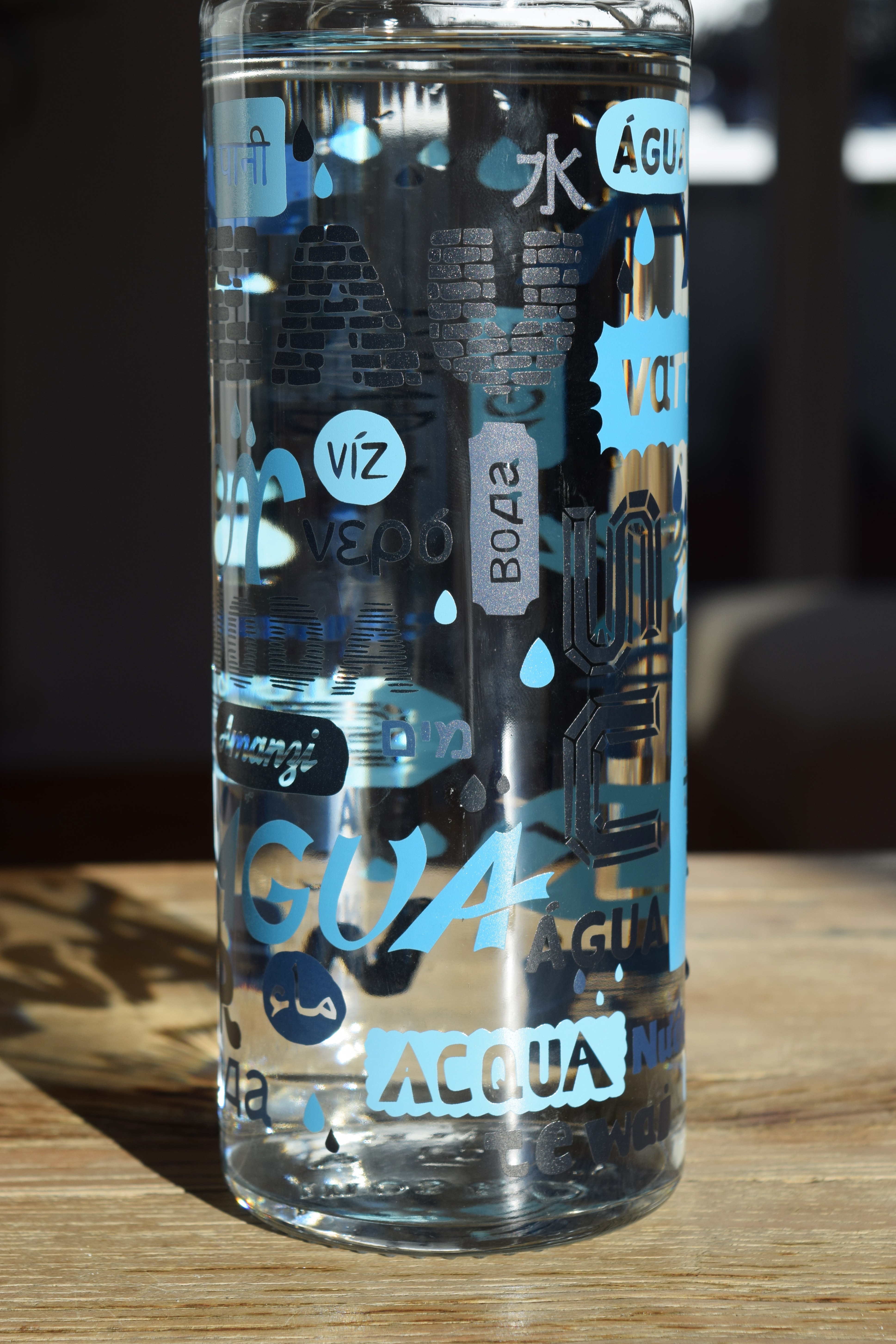
In the Photo: A Soulbottles bottle. Photo Credit: Soulbottles.
Q. Bottled water has become a major trend and industry over the past few years, what kind of response would you provide to convince people to use Soulbottles’ products, or just reusable bottles in general?
PK: To be honest, my main message is “please reuse a bottle. If you use a different brand, that’s fine with me. If you don’t use a bottle at all but just a glass at home, that’s also fine with me.” I’m really more interested in the message than in turnover.
The main argument that a lot of people use to switch is that the quality of water is often better, and that the taste is better. If you bought a good beer or good wine for example, you would never drink that out of a plastic cup, you would choose a glass one. The moment you put water in a nice container, you will start to like it more for its taste, and you will drink more. That’s healthy too, because we more or less tend to drink too little water.
Also, in Germany at least, because we have very strict rules about recycling it’s also just a matter of convenience. Here, a lot of people have to carry plastic bottles up and down the stairs because there’s no lift, and it’s just so much work. So that also helps, pointing out the absurdity of it.
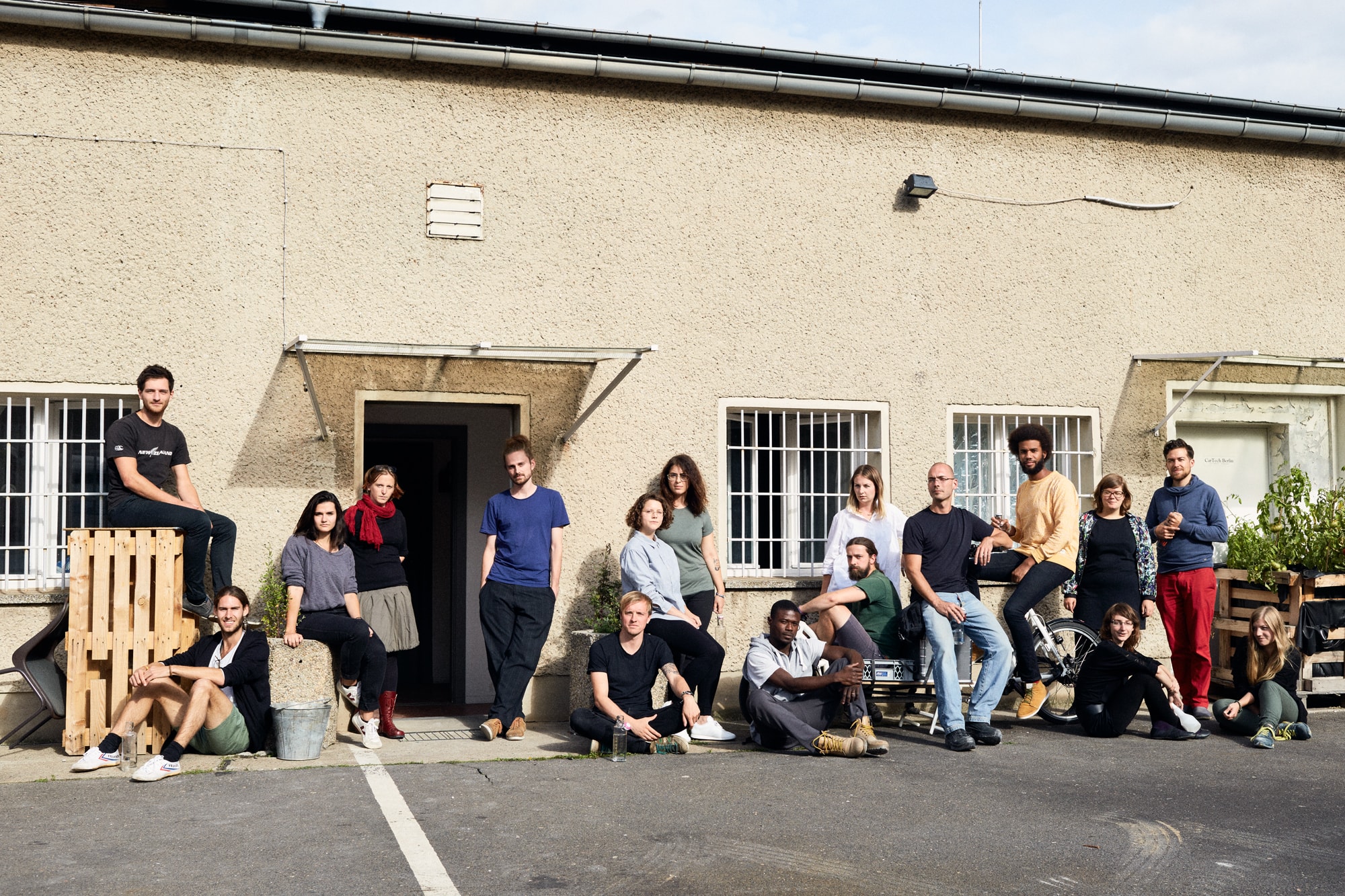
In the Photo: The Soulbottles team. Photo Credit: Soulbottles.
Q. You mentioned that your production is very regional and centered in Europe, is your customer base like that as well? Do you have customers abroad?
PK: We started in Austria and then moved on to Germany, which is now our biggest market. We also export a lot to Switzerland and France. We have a few shops in the United States, Canada, and Australia, but our main focus is still in Europe. This year we will turn six years old, but we really started to sell about five and a half years ago, or even after that. So we’re still growing, we’re still building up. We grew 50% last year, and the year before around 40%. There’s still a lot of movement.
The thing is we’re not an app in the App Store, scaling with a physical product is so much more work. You have to move into a bigger facility every time, and that costs money. We can’t grow like crazy, but we can grow at a natural and organic pace. And we will definitely export to the United States or wherever people want to have Soulbottles.
Q. What do you personally see as the future of Soulbottles going forward?
PK: My dream is that we can create a hub for sustainable ideas. We changed the owner structure for Soulbottles so that it’s owned by the people who work there, not just me anymore. All the profits will stay in the company, and be used to reinvest. I really want to see new products going out, maybe new services. I can see things going out in all kinds of directions, but always with the goal of helping people to act more sustainably. We want to be a for-profit organization on the outside, but also strictly mission-driven towards sustainability and making the world a little bit greener and prettier.
Editors Note: The opinions expressed here by Impakter.com columnists are their own, not those of Impakter.com


